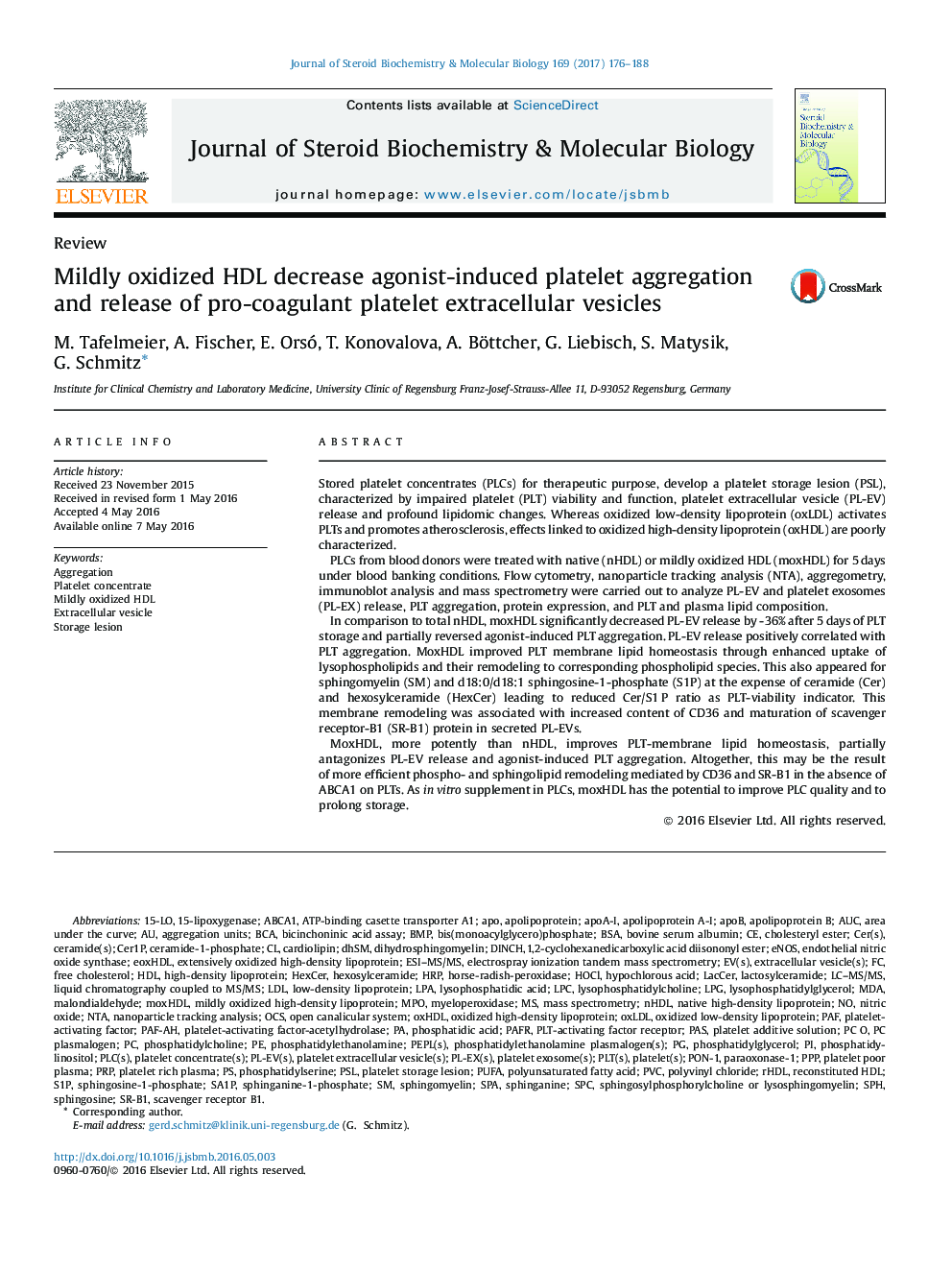| کد مقاله | کد نشریه | سال انتشار | مقاله انگلیسی | نسخه تمام متن |
|---|---|---|---|---|
| 5513092 | 1540978 | 2017 | 13 صفحه PDF | دانلود رایگان |

- Mildly oxidized HDL decreases release of platelet extracellular vesicles.
- Mildly oxidized HDL partially reverses agonist-induced platelet aggregation.
- Mildly oxidized HDL improves platelet lipid homeostasis.
- Mildly oxidized HDL contributes to phospho- and sphingolipid remodeling of platelets.
Stored platelet concentrates (PLCs) for therapeutic purpose, develop a platelet storage lesion (PSL), characterized by impaired platelet (PLT) viability and function, platelet extracellular vesicle (PL-EV) release and profound lipidomic changes. Whereas oxidized low-density lipoprotein (oxLDL) activates PLTs and promotes atherosclerosis, effects linked to oxidized high-density lipoprotein (oxHDL) are poorly characterized.PLCs from blood donors were treated with native (nHDL) or mildly oxidized HDL (moxHDL) for 5Â days under blood banking conditions. Flow cytometry, nanoparticle tracking analysis (NTA), aggregometry, immunoblot analysis and mass spectrometry were carried out to analyze PL-EV and platelet exosomes (PL-EX) release, PLT aggregation, protein expression, and PLT and plasma lipid composition.In comparison to total nHDL, moxHDL significantly decreased PL-EV release by -36% after 5Â days of PLT storage and partially reversed agonist-induced PLT aggregation. PL-EV release positively correlated with PLT aggregation. MoxHDL improved PLT membrane lipid homeostasis through enhanced uptake of lysophospholipids and their remodeling to corresponding phospholipid species. This also appeared for sphingomyelin (SM) and d18:0/d18:1 sphingosine-1-phosphate (S1P) at the expense of ceramide (Cer) and hexosylceramide (HexCer) leading to reduced Cer/S1Â P ratio as PLTâviability indicator. This membrane remodeling was associated with increased content of CD36 and maturation of scavenger receptor-B1 (SRâB1) protein in secreted PL-EVs.MoxHDL, more potently than nHDL, improves PLT-membrane lipid homeostasis, partially antagonizes PL-EV release and agonist-induced PLT aggregation. Altogether, this may be the result of more efficient phospho- and sphingolipid remodeling mediated by CD36 and SR-B1 in the absence of ABCA1 on PLTs. As in vitro supplement in PLCs, moxHDL has the potential to improve PLC quality and to prolong storage.
Journal: The Journal of Steroid Biochemistry and Molecular Biology - Volume 169, May 2017, Pages 176-188